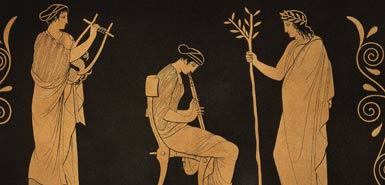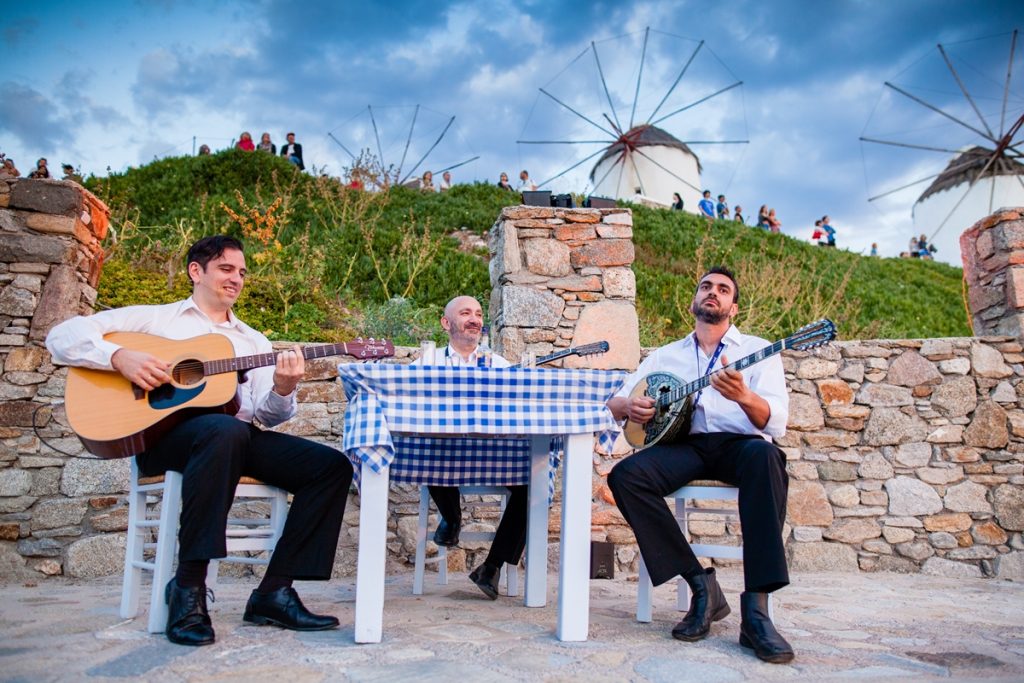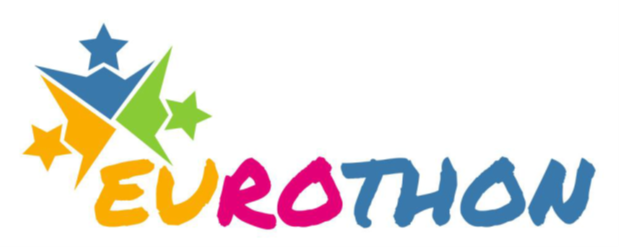Greece – Music
Music is an imperative component of culture in Greece, influenced by Eastern and Western sounds throughout the years.
The music as part of the Greek culture dates back to the ancient times, during which poetry, dancing, and music were inseparable and an important part in the ancient Greeks’ everyday life.
After, under the Byzantine Empire, Greek music got a more ecclesiastical approach. Next, during the 400 years domination by the Ottoman Empire, it was influenced by the eastern music. Eventually, it was ‘reborn’ incorporating many elements of the previous music styles in the 19th century.
Some of the most representantive Greek music genres are:
Folk Songs
The Greek folk songs can be divided in 2 styles:
- The akritic style (9th century AD and on). The songs expressed the life and struggles of the frontier guards of the Byzantine Empire (known as ‘Akrites’)
- The klephtic style (born during the Ottoman occupation). It includes love songs, wedding songs, exile songs, freedom songs, death songs, and sadness songs. It depicts a pivotal, bloody period in Greek history and life.
Musical instruments used in folk songs include lyre and lute, bagpipe, shawm, drum, tambourine and violin.
Nisiotika
This kind of music was born and became popular among the population of the islands in Greece.
Every island has its own style of nisiotiko and a unique technique of dancing it. Violin, lira, clarinet, and guitar are the most common instruments used to produce nisiotika. This music genre is present in local festival/fairs on any Greek island, where a large group of musicians performs live music all night.
Rebetiko:
This particular and famous music genre was born in ‘tekedes’, the Turkish style underground cafes of the district of Piraeus port in Attica and the city of Thessaloniki. Rebetiko music was introduced to the Greek society by the 2 million Greek refugees coming from Asia Minor in 1922, after the destruction of Smyrna. Those who had lost everything, sang about their surroundings, poverty, pain, hunger, prison, police oppression, drug addiction and betrayal. Rembetiko was then the forbidden music of the pariahs. In the 1950s, it started to be popular in the night clubs of Athens.
This kind of music has elements from both the Byzantine and Ottoman music. The main instruments of rebetiko music are bouzouki, the baglama, the guitar and the tambourine. Some notable representantives of the Rebetiko style were Vassilis Tsitsanis, Markos Vamvakaris, Marika Ninou, and Sotiria Bellou.
Find out more: https://blog.greeka.com/greece/rebetiko-feasts-greece/
Late 20th-century music:
During the 80s, modern artists like Dionysis Savopoulos, Nikos Papazoglou, Stavros Xarhakos, and Pavlos Sidiropoulos produced a sort of fusion of rebetiko music with elements of the rock music, generating a new kind. The songs refer to personal or political freedom or to everyday aspects of life, pain and sorrow.
Since then, many variations of this type of music, generally called as Entekhno, has been produced and loved by the Greek population.
Modern mainstream music:
The Greek mainstream music is called “modern laika” or “laiko pop”. This type combines elements of Greek music with western pop music. Critics say that this form of music, is of poorer quality. However, because this is the music that has permeated the popular culture in Greece, it seems that the majority of the people enjoy it.






